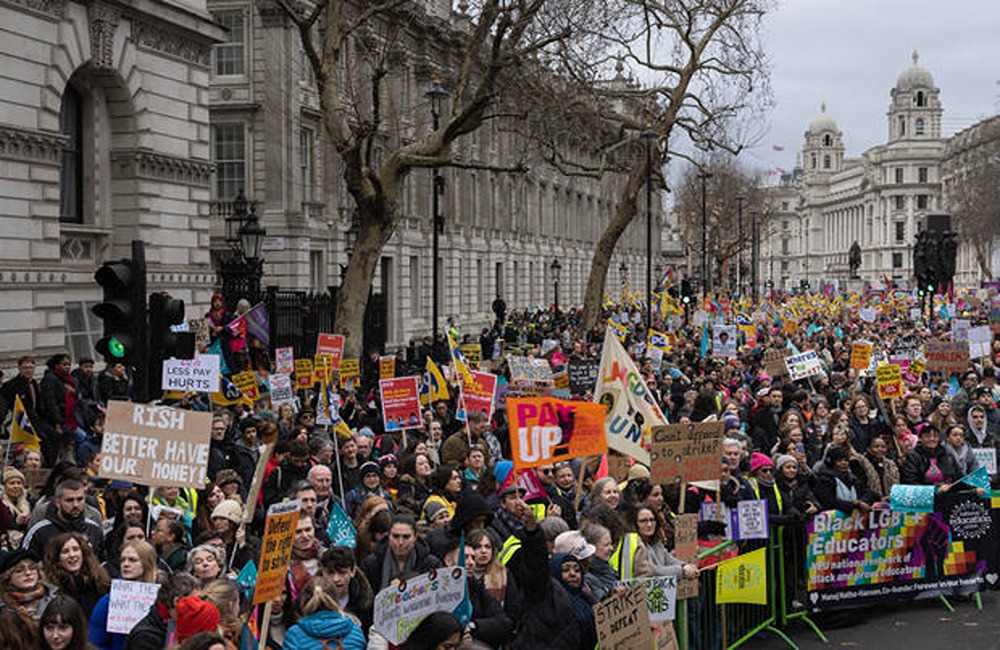An estimated 500,000 workers in the United Kingdom went on strike on Wednesday, the largest industrial action in the country in more than a decade. Teachers, government servants, train and bus drivers, border officers, and university personnel were among those on strike, demanding improved wages and working conditions in the face of rising inflation and energy prices, which an IMF projection predicts may have been exacerbated by Brexit.
“The government have been running down our education (system), underfunding our schools and underpaying the people who work in them,” the National Education Union’s joint general secretary, Kevin Courtney, said, according to The Associated Press.
According to a news report, over 85% of schools across the country were either totally or partially closed due to the strikes on Wednesday, forcing thousands of parents to either rearrange their own work schedules or seek child care choices.
“Primary schools where you can’t find special needs assistants because they’re taking jobs in supermarkets, where they are paid better — that’s what’s making people take action,” said Courtney.
For months, large-scale strikes have been held across the United Kingdom, halting public services and affecting hospital and emergency treatment, among other things. Although nurses and ambulance workers did not strike again on Wednesday, they do plan to return to the picket lines in the coming days.
The IMF did not link its estimate to Britain’s exit from the European Union three years ago, although trade has shrunk as a result, and many EU workers have fled the UK since Brexit, generating a labour shortage that other European countries have not had to deal with.
Many public sector employees claim that their pay has declined in real terms over the last decade, and that rising inflation has put them in financial jeopardy, with some forced to rely on food banks.
So far, UK Prime Minister Rishi Sunak has taken a hard line against the strikes, claiming that some of the salary hikes sought by public sector workers are unsustainable for the government. Union leaders claim that the administration has refused to make any real concessions in order to end the strikes.
“Our children’s education is precious, and they deserve to be in school today,” Sunak said.
The leader of a national federation of trade unions, Paul Nowak, said the strikes would not stop unless meaningful change was achieved.
“The message to the government is that this is not going to go away. These problems won’t magically disappear,” he said, according to The Associated Press.























